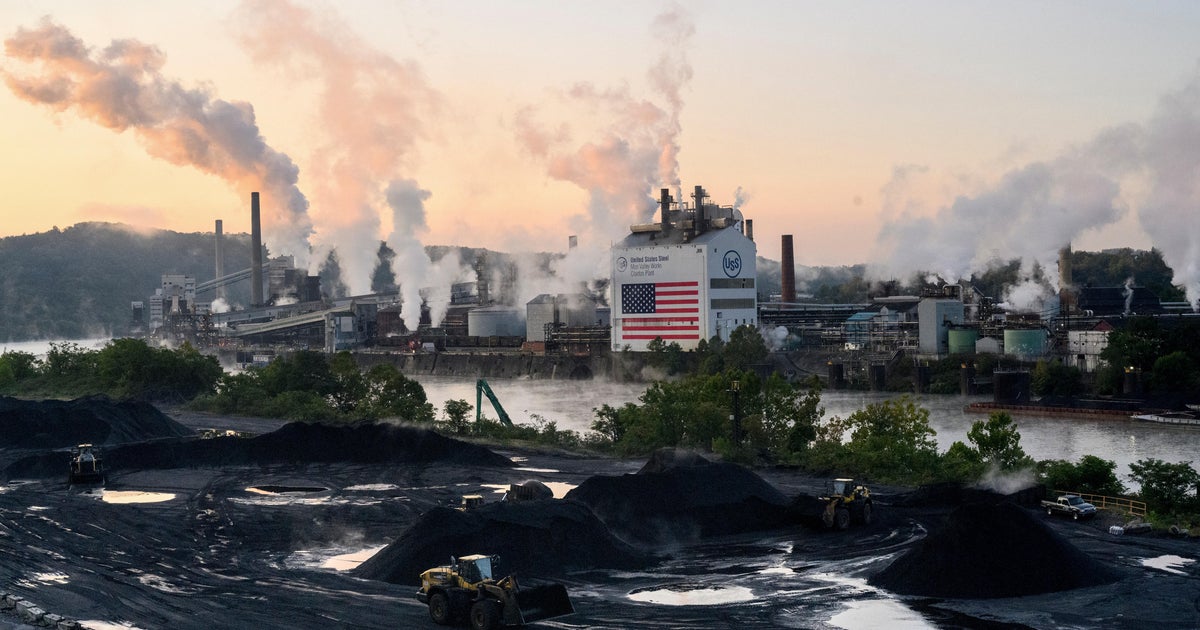President Biden announced Friday that he is blocking the $15 billion proposal from Japan’s Nippon Steel Buy American steel after a government panel recently failed to reach a consensus on the potential national security risks of the deal.
Mr. Biden said his decision is aimed at protecting the country’s security and infrastructure, as well as supply chain resilience. The U.S., he said, needs domestic companies that represent the bulk of the country’s steelmaking capacity to “continue to lead the fight on behalf of America’s national interests.”
Mr. Biden was against the deal for a long time and was waiting for a report on the merger to be issued by the Committee on Foreign Investment in the United States, known as CFIUS, to announce its final decision. The interagency committee, chaired by Treasury Secretary Janet Yellen, reviews such deals for potential risks to national security, and can block sales or force changes in terms to protect national security. CFIUS said on December 23 that it failed to reach a consensus on the deal and left it to Mr Biden.
“It is my solemn responsibility as President to ensure that America, now and well into the future, has a strong, domestically owned and operated steel industry that can continue to be our national source of strength at home and abroad to feed; and it is a fulfillment of that responsibility to block foreign ownership of this critical American company,” the president said in a statement Friday announcing his decision to block the deal. “US Steel will remain a proud American company – an American-owned, American-operated, American-union steelworker company – the best in the world.”
An accompanying order banning the proposed takeover of US Steel, signed by Mr Biden, says there is “credible evidence” that Nippon Steel “could take action that threatens to harm the national security of the United States.”
“This action reflects my unwavering commitment to use every authority available to me as President to defend America’s national security, including by ensuring that American companies continue to play a central role in industries critical to our national security,” the president’s statement said.
Mr. Biden, backed by the United Steelworkers, said earlier this year that it was “critical for (US Steel) to remain a domestically owned and operated American steel company.”
But a U.S. official familiar with the matter who spoke on condition of anonymity to discuss the private report said some federal agencies represented on the panel were skeptical that allowing a Japanese company to become a steelmaker buying into American hands would entail national security risks.
American steel indicated it will likely file lawsuits, including against the Biden administration, if the president blocks the takeover, sources familiar with the process said. Cleveland-Cliffs, which lost its bid for US Steel, could also be mentioned, as could President Lourenco Goncalves and US Steelworkers President Dave McCall.
On Tuesday, Nippon Steel, headquartered in Japan, proposed giving the US government a direct veto over any changes to US Steel’s production capacity. The proposal represented a minor change to a CFIUS recommendation intended to address concerns that Nippon Steel’s proposed purchase of US Steel could lead to a decline in domestic steel production and a reduction in the US workforce.
Both Mr Biden and President-elect Donald Trump courted union workers at US Steel during the presidential campaign promised to block the takeover amid concerns about foreign ownership of a U.S. flagship company. However, the appeal of the Nippon Steel acquisition was that the company has the financial resources to invest in and upgrade its plants, potentially maintaining steel production in the US.
Trump also opposed the takeover, promising to “block this deal” in a Truth Social post earlier this month. Trump proposed reviving US Steel’s flagging fortunes “through a series of tax breaks and tariffs.”
The steelworkers union said it doubted Nippon Steel would keep jobs at unionized factories, deliver on collectively bargained benefits or protect U.S. steel production from cheap foreign imports.
Despite political opposition, Nippon Steel and US Steel waged a public relations campaign to win over skeptics. US Steel said in a statement Monday, December 23, that the deal was “by far the best way to ensure that US Steel, including its employees, communities and customers, will thrive well into the future.”
A growing number of conservatives had publicly supported the deal as Nippon Steel began winning over some steelworker union members and local officials around its blast furnaces in Pennsylvania and Indiana. Many lenders said Nippon Steel has a stronger financial balance sheet than rival Cleveland-Cliffs to invest the money needed to upgrade U.S. Steel’s aging blast furnaces.
Nippon Steel has manufacturing facilities in the US, Mexico, China and Southeast Asia. It supplies the world’s top automakers, including Toyota Motor Corp., and makes steel for railroads, pipelines, appliances and skyscrapers.
In September, Mr. Biden issued an executive order expanding the factors the Committee on Foreign Investment in the United States should consider when reviewing deals, such as how the deal affects the U.S. supply chain and whether it would involve the sensitive personal data of would endanger Americans. risk.
Kathryn Watson, Melissa Quinn, Jennifer Jacobs and
contributed to this report.
